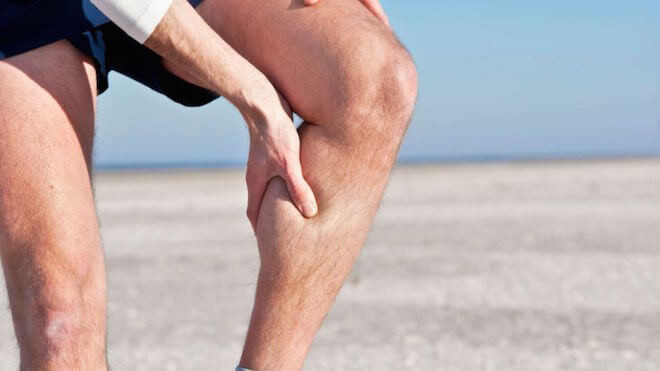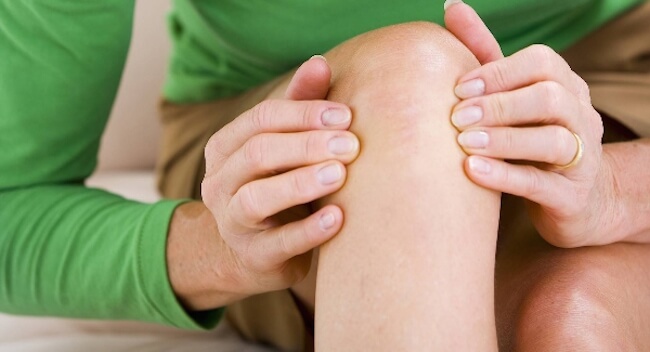Whether you have pushed your muscles too hard in the gym or had to stand all day at the work, we all have endured stiff joints and sore muscles from time to time. It is our body’s natural way of telling that you pushed it too hard during the day. There is nothing alarming about it. Just take the necessary rest and you would be fine in a day or two.
However, if you are regularly suffering from muscle pains and that also without any apparent reason, then you should be a bit worried. I mean if you are an athlete and need to push your body to its limits, then the daily muscle pain is nothing unusual. However, for a regular individual it is. Here are common factors that might be secretly causing muscle ache. We have also listed anecdotes to these common problems.
-
Vitamin D Deficiency
The numerous studies have found a direct relation between the vitamin D deficiency and chronic muscle pain. In 2003, a study was conducted by Greg Plotnikoff, MD, senior consultant with the Allina Center for Health Care Innovations in Minnesota on 150 people in Minneapolis who came to a community health clinic complaining of chronic pain. It was found that about 93 percent of the study subjects had vitamin D deficiency. It has to be noted here that the vitamin D blood levels of 30-40 ng/mL are considered ideal. However, the average vitamin D blood levels in the study conducted by Plotnikoff was about 12, and some people had vitamin D levels so low, they were undetectable.
In another study conducted by researchers at Mayo Clinic in 2009, it was found that the patients with less than sufficient vitamin D levels were taking much higher doses of pain medication in comparison to those who had adequate levels. In fact, the patients with vitamin D deficiency had to take twice as much pain medication as those who had adequate levels.
Our body cells have vitamin D receptors. These receptors are also found in our muscles. In case of vitamin D deficiency, these receptors become hypersensitive and cause soreness. Also, the lack of vitamin D can affect how our body absorbs calcium, which in turn makes bones softer and can become painful. Even 15 minutes exposure to the sun can improve the vitamin D levels and reduce the muscle pain and other symptoms of vitamin D deficiency. In case, it is cloudy outside, you can get vitamin D from food sources such as fish oils, fatty fish, mushrooms, beef liver, cheese, and egg yolks.
-
Iron Deficiency
Although the iron deficiency doesn’t directly cause the muscle pain, but it is responsible for anemia, the symptoms of which include fatigue, shortness of breath and a higher risk of infection. And, the fatigue for prolonged time period can feel like muscle soreness.
The iron deficiency, anemia leads to decrease in the levels of red blood cells and oxygen in your body. The low iron intake forces body to use up its iron stores, which prevents your body from making enough red blood cells. The red blood cells as we all know contain hemoglobin, an iron rich protein responsible for transportation of oxygen from lungs to other body parts. And, when the hemoglobin content is low in the red blood cells, the amount of oxygen transported around the body also suffers.
Also, the lack of oxygen in the muscles can cause pain. This pain is often caused by the trigger points in the muscles. The red blood cells are also responsible for removing carbon dioxide and waste products from the muscles. So, when your red blood cells count is low, the toxins and waste can accumulate in the muscles and can contribute to muscle pain.
If you have a serious iron deficiency, you will have to consult a physician. However, if you haven’t reached the danger zone, you can get your iron stores up by eating iron rich food items such as red meat, eggs and dairy. Taking iron supplements can also be beneficial. Plus, the deep tissue massages can improve blood circulation, reduce toxin buildup and soothe muscle pain.
-
Stress
According to Jay Winner, M.D., author of ‘Stress Management Made Simple,’ women who lead demanding lives are more than twice as likely to suffer from aches and pains as women with less busy lives. And, we here aren’t talking about the tension headache. Face and jaw are most likely to suffer because of tension. When suffering from tension, many people unknowingly clench their jaws or grind their teeth during sleep. Those who suffer from this problem, usually feel pain in the jaws which usually gets worse when they chew.
Another way in which tension causes muscle pain is by releasing the stress hormones. The presence of these hormones causes your muscles to tense ready to fight or run. Obviously, you aren’t going to run or fight. So, these hormones don’t get the release point, which means you would have tense muscles all the time. In such cases, the relaxation techniques such as meditation and yoga can be helpful. Some nutrients such as B vitamins, magnesium, theanine, and Siberian ginseng can also assist in relaxation.
-
Muscle Sprains
The muscle sprains, which are usually caused by accidental injury, intense exercise, or manual work, set in almost 1-2 days after the activity. When you exercise or do any other physically challenging work, the microscopic tears develop in the muscle fibers. Usually, these microscopic tears don’t trigger inflammation, which means you won’t suffer from any pain. And, with the good supply of proteins, your body will automatically repair the tears in muscle fiber. However, in some cases, the muscle tear are too big to be repaired in the usual way. In such cases, you will have inflammation that can cause severe pain.
Also, the muscle damage can refer to the tearing of the tendons attached to the muscle. Plus, the tearing of muscles can also damage small blood vessels, causing local bleeding. This can lead to pain caused by irritation of the nerve endings in the area.
-
Other Medical Conditions
The muscle pain can also be caused by other serious medical problems that can cause inflammation. The medical conditions such as polymyalgia rheumatic and arthritis can lead to chronic joint inflammation. An underactive thyroid, fibromyalgia, chronic fatigue and viral illnesses are some other factors that could contribute to muscle soreness and pain.
Plus, the mechanical joint problems can cause muscle pain as well. These problems often occur from chronic wear and tear. For example, your knees, lower back and feet will suffer from wearing inappropriate footwear for the prolonged time period. For all of these problems, you should visit a medical expert.






